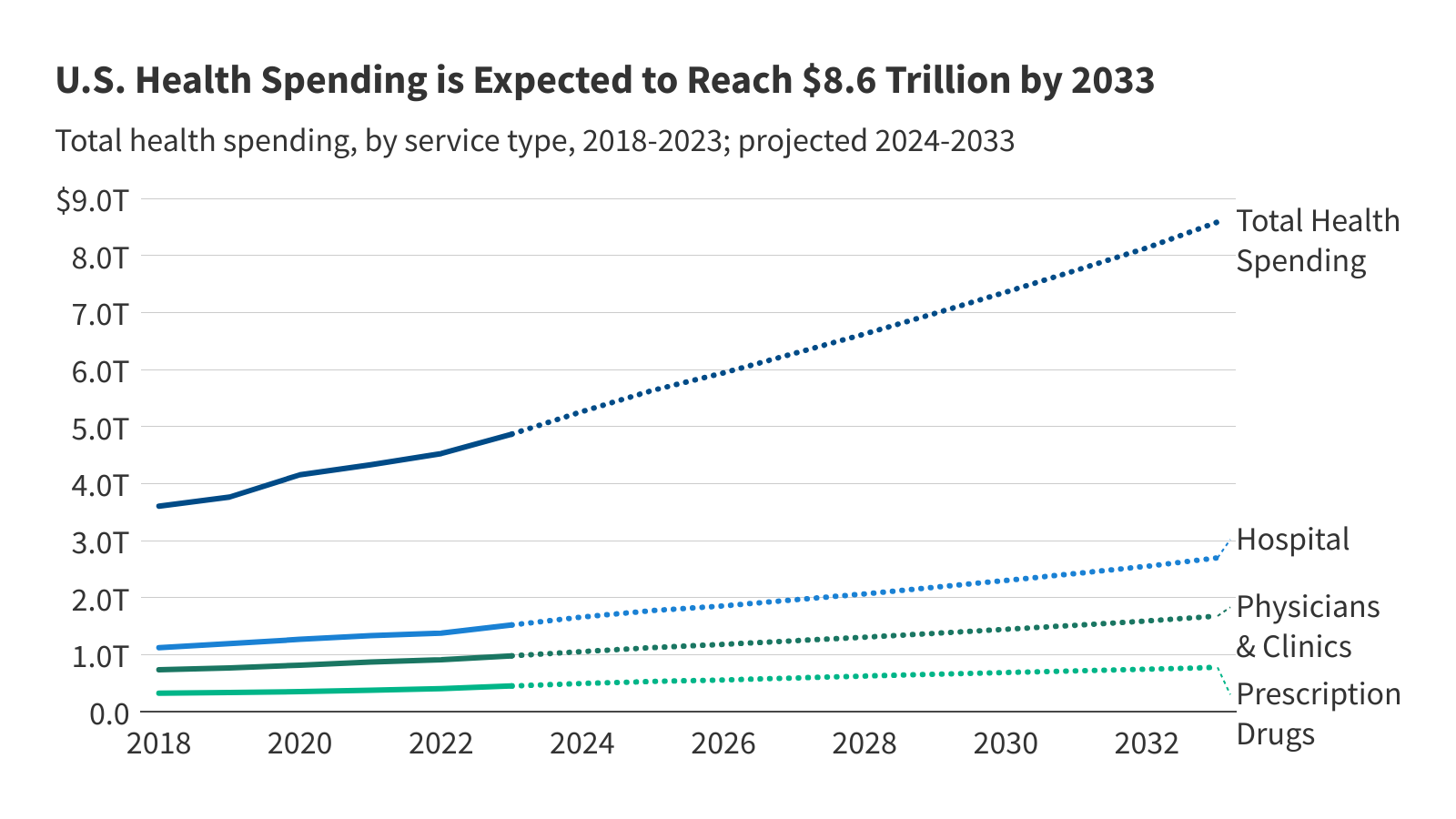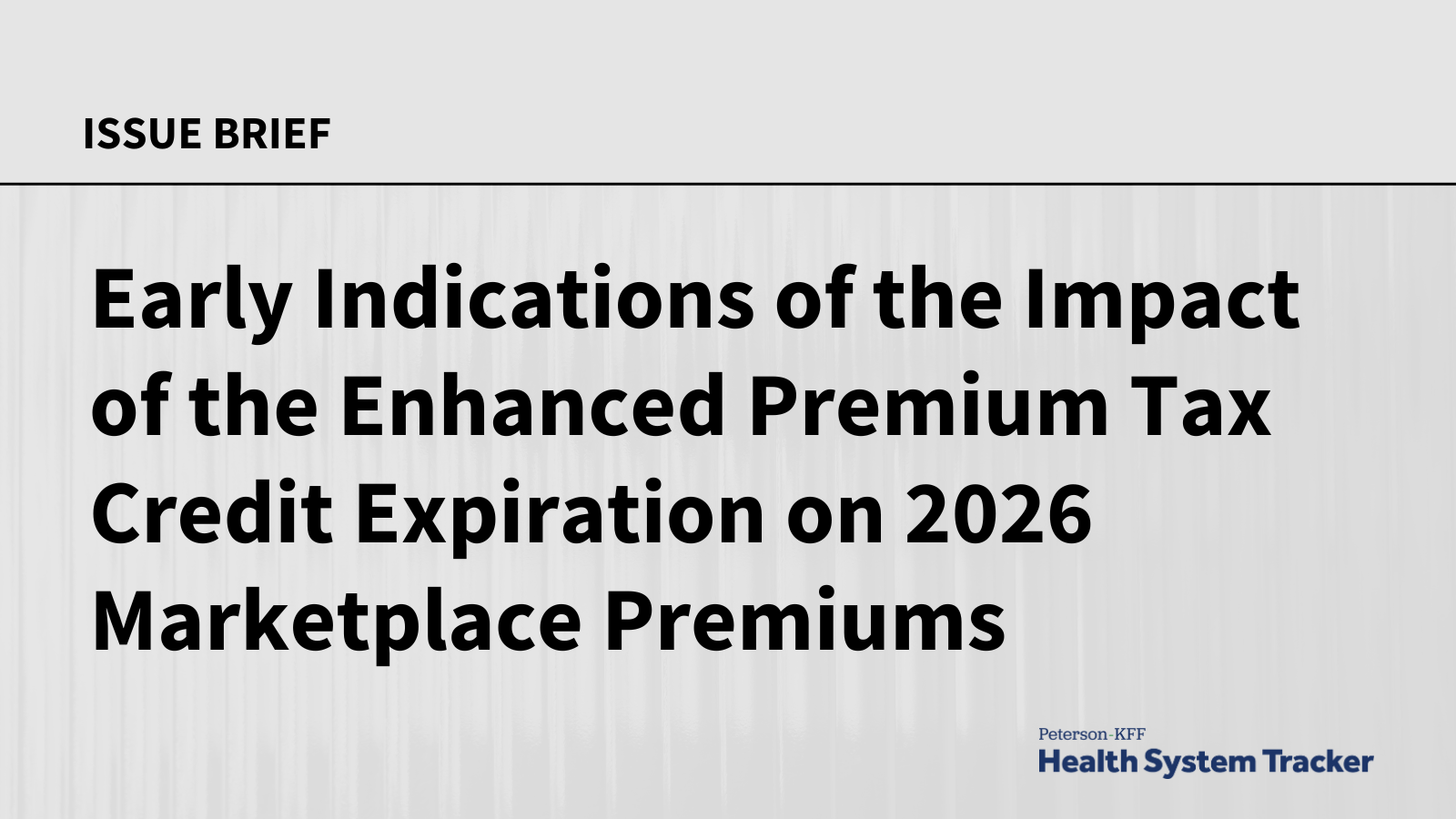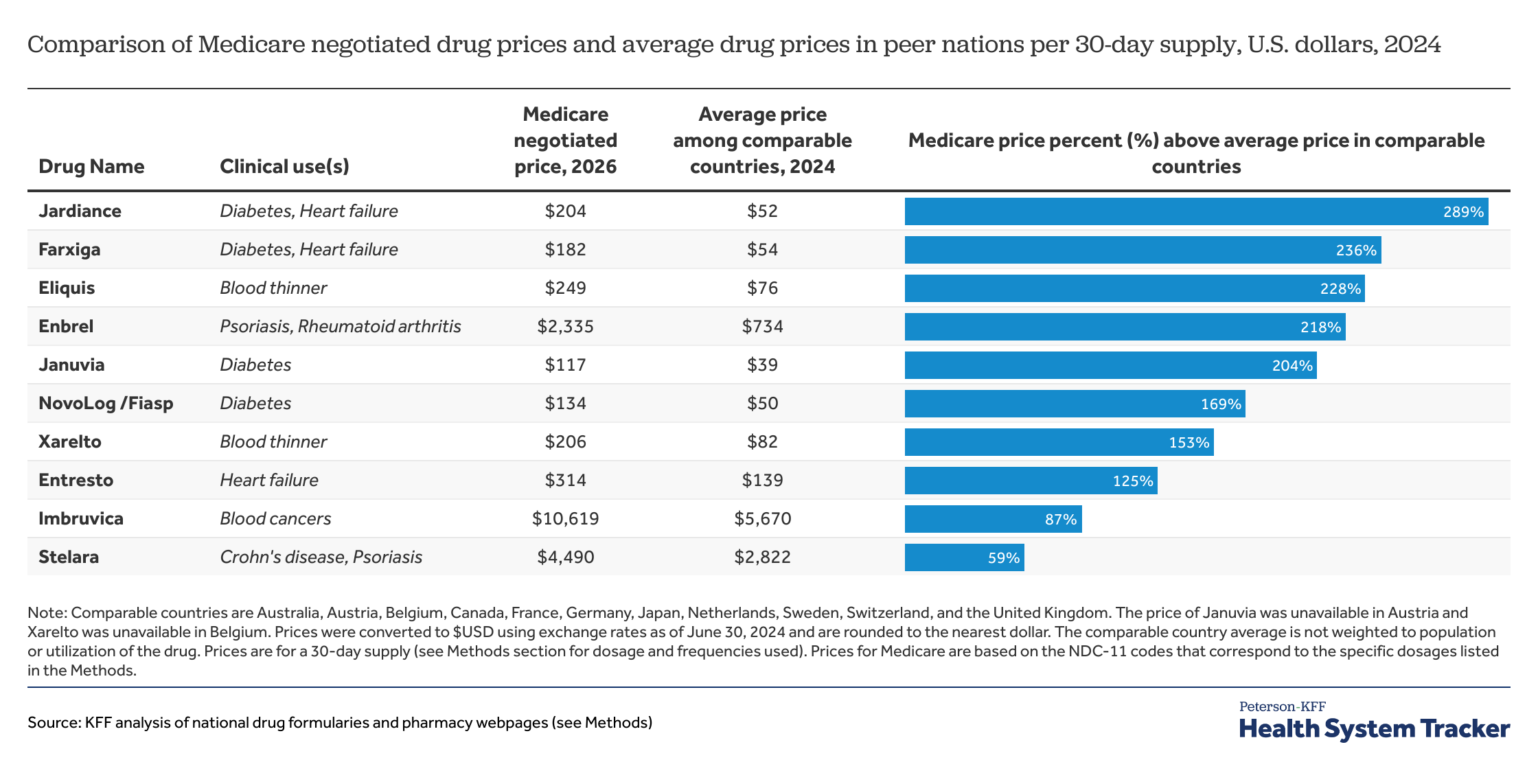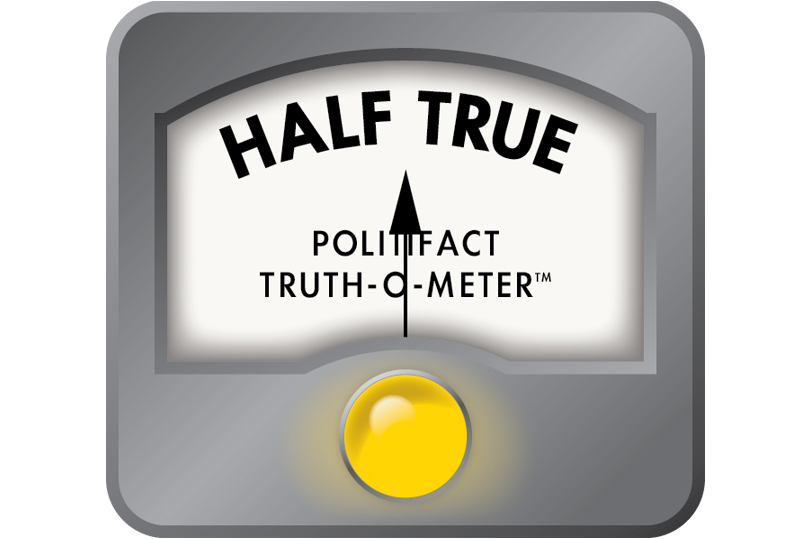Snapshots: Comparing Projected Growth in Health Care Expenditures and the Economy
The rising cost of health care is much in the news.
The independent source for health policy research, polling, and news.


This updated chart collection explores how health spending is expected to grow in coming years, based on National Health Expenditure projections from federal actuaries. By 2033, health spending is expected to hit $8.6 trillion.

KFF examines 23 early insurer premium filings from 3 states and DC. While not a complete picture, these filings provide early insights into how insurers are expecting premiums to change in 2026, if the enhanced tax credits expire.

This analysis finds that Medicare’s negotiated prices for 10 high-expenditure prescription drugs are lower than what private Medicare drug plans had been paying, but still much higher than the prices available in 11 other wealthy nations.

This Health Policy 101 chapter explores trends in health care costs in the U.S. and the factors that contribute to this spending. It also examines how health care spending varies and the impact on affordability and people's overall financial vulnerability.

This data note reviews our recent polling data that finds that Americans struggle to afford many aspects of health care, including disproportionate shares of uninsured adults, Black and Hispanic adults and those with lower incomes.

This interactive Peterson-KFF Health System Tracker tool allows users to examine five decades worth of data on health expenditures by federal and local governments, private insurers, and individuals.

This chart collection draws on recent KFF poll findings to provide an in-depth look at the public’s attitudes toward prescription drugs and their prices. Results include Americans’ opinions on drug affordability, pharmaceutical companies, and various potential measures that could lower prices.




Choose which emails are best for you.
Sign up here